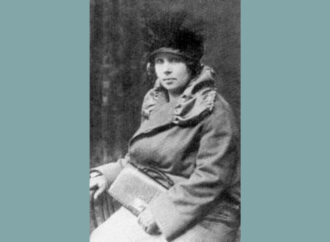When this book was published earlier this year it caused something of a stir. I suspect this was because of the unusual combination it presented: a “famed columnist for The New York Times (as the author is described on the book’s jacket) had written a book about old-fashioned morality. It is even a paradox: is it even possible to write a credible book about the virtue of humility when your newspaper columns “reach over 800,000 readers across the globe”? Some of David Brooks’ more waspish critics think not. I am prepared to give him the benefit of the doubt.

Indeed, living in a world of instant knowledge, expertise and communication, it is stimulating to discover a book that is much more than the traditional type of “self-help” manual, with its mandatory exhortations and advice. What David Brooks has done is to reflect on the ancient recognition (central to the world’s great religious texts) that man is divided, between the outer persona who is influenced by the shallow values of society, and the inner person who searches for meaning to life that transcends merely transitory and worldly goals and ambitions.
Understanding this permanent conflict between self-interest and self-sacrifice and confessing that he himself was “born with a natural disposition towards shallowness”, Brooks’ book examines the lives of certain people who, in his view, have shown exceptional moral strength: humility, restraint, temperance and self-discipline. Essentially, he is asking: what is the secret of their success in becoming people of “character” and how can we emulate them?
It is noteworthy that all the exemplars he chooses are from earlier centuries or at least grew to maturity before the last war. Like many social commentators, Brooks sees a disjunction between his grandparents’ generation, who grew up when society was more cohesive and who believed in thrift, service, self-effacement and sacrifice, and the generations that have succeeded the war, where the emphasis has been on individualism, one’s rights rather than one’s duties, and the pursuit of personal fulfilment at the expense of community. As he puts it, the older generation are “less likely to feel that every thought, feeling and achievement should be immediately shared with the world at large.”
Among his roll-call of men and women to be emulated because of the ways they overcame early adversity to achieve greatness of one kind of another, Brooks includes President Eisenhower, General George Marshall, Dorothy Day, novelist George Eliot, St Augustine and the great English man of letters, Samuel Johnson. They are an eclectic choice, not easy to form into a group. While it is a truism that all great men and women have, by definition, overcome failure and adversity to arrive at their place in history, there are broad distinctions to be made which Brooks ignores: people of exceptional ability – which we call “genius” – and those we term “saints”, are different from the common run, either by natural endowment or by an exceptional response to the grace offered to them. Thus, including Augustine and Day (a probably future saint), as well as Eliot and Johnson, both firmly within the canon of English literature, alongside two military men who rose to fame during the last war, seems an improbable conjunction.
He also uses words like “sin”, “virtue”, “grace”, “holiness” – even the word “God” occasionally – without revealing his own religious beliefs or formal religious practice (if indeed he has one.) This leaves the reader wondering if the book is, as its title states, about how to achieve “character” (as it happens, neither Eisenhower nor Marshall went to church) or if it is a covert exercise in religious conversion. Otherwise, what are we to make of the statement in his conclusion, “that we are all, ultimately, saved by grace”?
I suspect “The Road to Character” is best reflected in the lives of Eisenhower and Marshall (and that of Frances Perkins, the first woman to be part of Franklin Roosevelt’s administration) as they demonstrate how deprivation and difficulty in early life can be overcome by, as Brooks’ writes of Perkins, “a thousand little acts of self-discipline to guard against self-indulgence”. Reading his description of Eisenhower’s tough background on a humble farm in Abilene, and his capacity to suppress his naturally passionate temperament in the interests of true leadership, was revelatory. Also unknown to me was the way General Marshall was revered by his contemporaries (Churchill visited him in hospital during his last illness and wept in the corridor) for his complete integrity and sense of honour.
I suspect most readers of The New York Times will understand the ways in which men like Eisenhower and Marshall achieved great things more easily than the examples of Dorothy Day and Augustine, simply because holiness, responding with consummate generosity to the grace of God in one’s life, is somewhat different to the self-control and restraint needed for exemplary public service. And one could argue, for instance, that the genius of Dr Johnson was displayed through and alongside his glaring flaws – his lack of a disciplined life, his sloth, his intemperate behaviour – rather than through self-restraint.
Yet, despite the thread uniting the characters in Brooks’ book being rather attenuated he still throws out a thought-provoking challenge. His theme is serious and his argument unassailable: in order to lead meaningful lives we need to dig below the surface of worldly ambition and success. To become people of character rather than status we need to be humble; to recognise we are flawed and have to constantly struggle against the temptation of pride; that self-sacrifice is essential and that “you become more disciplined, considerate and loving through a thousand small acts of self-control, sharing, service…”
Brooks has a large ambition, writing to the reader in his introduction: “I’m hoping you and I will both emerge from the next nine chapters slightly different and slightly better.” It is an unusual wish for a modern member of the media literati of the American East Coast, but it is a worthy one and this thoughtful book should be read in this spirit.
This article by Francis Phillips was originally published on MercatorNet.com under a Creative Commons License. If you enjoyed this article, visit MercatorNet.com for more. ?The views expressed by the author and MercatorNet.com are not necessarily endorsed by this organization and are simply provided as food for thought from Intellectual Takeout.

















Leave a Comment
Your email address will not be published. Required fields are marked with *